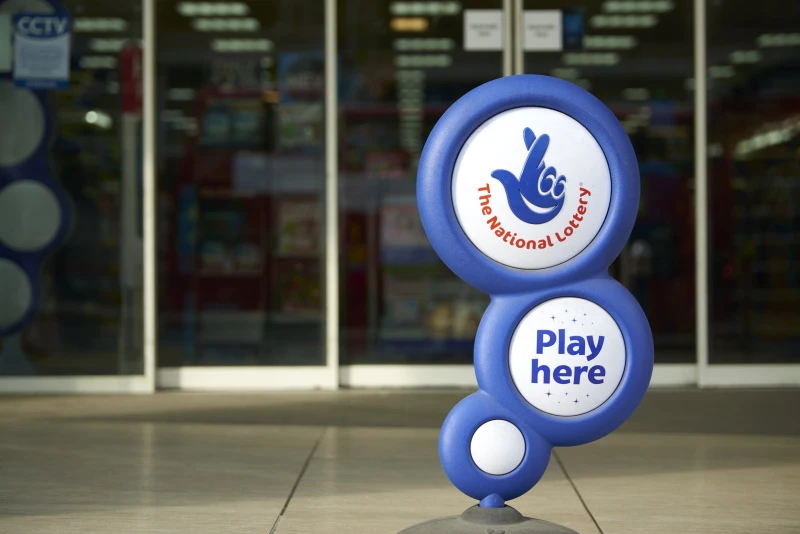Digital growth helps Camelot mitigate retail decline in H1

These sales helped Camelot generate £863.7m for good causes, down 1.5% year-on-year. Camelot also noted that The National Lottery has so far delivered more than £800m to causes that help the UK deal with the pandemic.
Camelot chief executive Nigel Railton said the business faced a difficult six months because of the virus and so it was very proud that its sales numbers have largely held steady.
“Like most other businesses, we’ve faced a lot of upheaval and challenges this year,” Railton said. “At the start of April, we found ourselves in an unprecedented situation – with a sharp decline in sales, retail uncertainty and our EuroMillions game in jeopardy, as some of our partner countries were under strict lockdowns. To add to this, we had to move overnight to the vast majority of our employees working from home – so we’re enormously proud of this set of results.”
The effects of the novel Coronavirus (Covid-19) led to a 39.1% increase in digital lottery sales. Much of this increase came because of a growth in mobile play, as mobile sales shot up 50.7% to £1.13bn, passing £1bn for the first time.
The operator added that the increase came thanks in part to 1.3m new digital player registrations.
However, this digital growth was outweighed by a retail decline, with retail sales down 30.5% to £2.23bn. This resulted in £126.5m in commission for National Lottery retailers.
Looking just at the second quarter of 2020-21, Camelot’s sales came to £2.02bn
Instant win games were the largest source of revenue, bringing in £882.7m, while Lotto brought in £475.8m and EuroMillions £444.6m, Thunderball £75.4m. Lotto HotPicks sales made up an additional £39.0m and EuroMillions HotPicks £23.4m. Sales for the Set for Life Draw came to £83.2m.
Camelot also noted that retail sales picked up in the second quarter, from July to September, as restrictions eased. After sales of £1.04bn in the first quarter of its financial year, sales reached £1.20bn in the second.
Digital sales, on the other hand, came to £827.7m.
Since the launch of the National Lottery in 1994, Camelot has now generated more than £42bn for good causes.
Railton added that the operator’s 2017 strategic review – which followed an 8.8% drop in ticket sales to £6.92bn and resulted in a new digital strategy – played a major part in its continued strong sales since.
“Thanks to the strong foundations we established following our strategic review – combined with our years of experience and some innovative thinking – we’ve moved quickly and decisively, and adapted to the ever-changing situation. That has enabled us to continue running The National Lottery safely and responsibly because we know the huge amount of good it does across the UK.”
The Camelot chief executive said that looking ahead, there is further uncertainty, and he could not be sure what Camelot’s sales will look like in the second half of the year or beyond.
“With the ongoing impact of Covid-19 and recessionary headwinds, the second half of the year will, no doubt, be very challenging – and indeed this disruption could extend further into 2021/22,” Railton explained. “So, while there are no guarantees that we’ll finish the year in as strong a place as we ended the first half, we’ll continue to focus on our strategy for long-term, responsible growth – adapting our plans as necessary according to the circumstances.
“My sincere thanks must go to all of my fantastic colleagues – whose wellbeing is, and continues to be, our first priority – as well as our 44,000 National Lottery retailers who have done an extraordinary job for the entire UK, providing food, medicine and other essentials. We don’t pretend that selling National Lottery tickets is as important as any of that, but the fact that they’ve stayed open has also ensured that Good Causes have continued to benefit throughout.”
Last month, Camelot announced that it has completed the Gambling Commission’s Selection Questionnaire – the first stage of the next National Lottery tender for the rights to run the lottery – but did not commit to bidding for the tender.
However, Railton said Camelot was committed to continue working with the lottery.
“I firmly believe that we have the strong track record and experience required to carry on raising vital funds for those who need it most – and we’re fully committed to continuing to work with the government, our regulator and the wider National Lottery family to keep making a real difference to the lives of people and communities across the UK,” he said.
Czech gaming giant Sazka Group and Indian lottery operator and technology provider Sugal & Damani have both also completed the questionnaire and intend to bid.
